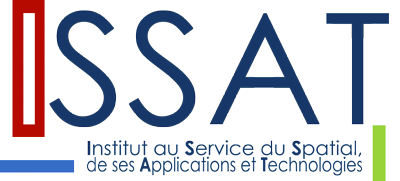aller au menu | aller au contenu


Space applications
training courses
Courses
Master mention Sciences de l'Océan, de l'Atmosphère et du Climat (SOAC) - 3 parcours
- Organisation : Université de Toulouse - Faculté Sciences et Ingénierie
(Université de Toulouse) - Way of training : Initial education - Life-long learning
- Language(s): French
- Place: Toulouse, and in Benin for the M2 OA course (French Regions: Occitanie)
- Prepared diploma/grade/title: Master or DNM: French National Master Degree
- 1st required level : French baccalauréat + 3
- VAE (Validation of Acquired Experiences): Yes
- This training is included in RNCP / RS
Course Details
Objectives : The Master's degree in Ocean, Atmospheric and Climate Sciences (SOAC) aims to train specialists in meteorology, oceanography and climate and environmental sciences.
The training offers theoretical and practical teaching using environmental research and monitoring methods (hydraulic installations, airborne measurements, physical/biogeochemical measurements, modelling, data analysis, etc.).
Field teaching is also implemented in M1 and M2: weather station, balloon radiosonde, pollution, Pic du Midi visit, measurements at sea at the Banyuls sur Mer Oceanographic Observatory.
This Master's degree offers 3 courses:
Climate Dynamics (CD): focused on training specialists in physical processes occurring in the atmosphere, in the ocean and at interfaces with the continental surface, as well as experts in climate issues.
Environmental Studies (EE): aims to train future executives specializing in environmental sciences, whether in the fields of air (atmosphere and indoor air) or water, with additional skills in environmental metrology.
Oceanography and Applications (OA): intended to train the next generation of oceanographic researchers and to create skills, particularly in West African institutions for research and for industrial and commercial applications.
The SOAC specialization participates in the EUR TESS Master's program [https://tess.omp.eu/], the objective of which is to offer a reinforced study program of 30 additional ECTS spread over the two years of the Master's degree. Candidates wishing to join the TESS program are invited to submit their application on the EUR website by attaching a cover letter.
The additional courses are based on a multidisciplinary approach allowing TESS students to broaden their specialization in the field of Space and Earth Sciences. Selected students benefit from financial support for their mobility to Toulouse, and from mobility abroad during their studies.
Degree Level (EU) : 7 - (EQC level or equivalent)
Acquired skills during the training : Conduct scientific and technical monitoring in the field of climate and the environment by analyzing relevant documents.
Develop a climate or environmental diagnosis by using various data sources and theoretical and practical knowledge.
Build a scientific approach relating to the fields of climate and the environment by demonstrating critical thinking.
Simulate and analyze the interactions between the atmosphere, ocean and continental surfaces by implementing appropriate numerical or experimental methodologies.
Identify emerging scientific or technical questions in the field of meteorology, oceanography, climate and the environment, and respond to them by implementing innovative numerical and instrumental methodologies.
Respond to societal demands related to climate change and variability based on simulations and observations, by developing decision-making tools.
Targeted careers : Research engineer for large organizations, industry (SMEs, ETIs, GEs), design offices, local and regional authorities and government services in the sectors of air quality, environment, renewable energies, QSE, scientific computing, digital service companies, R&D, etc.
And after a doctorate, other research professions in large organizations and in companies and design offices
Partnerships with national organisations : INPT ENM and CIPMA-University of Abomey Calavi, Cotonou, Benin
Dedicated web site : https://www.univ-tlse3.fr/decouvrir-nos-diplomes/master-mention-sciences-de-locean-de-latmosphere-et-du-climat
Dedicated web site : https://tess.omp.eu/ (EUR TESS)
Applications
- Environment and Land Management (Environmental protection, agriculture, biodiversity, climate changes; Resources, land-use planning, infrastructures)
Space Technologies and Scientific Disciplines
- Earth observation (Remote sensing, GIS, geomatics)